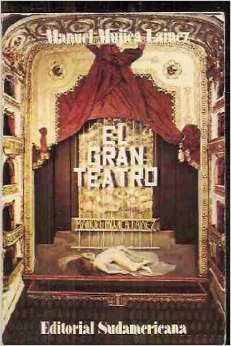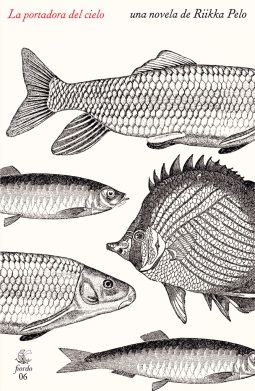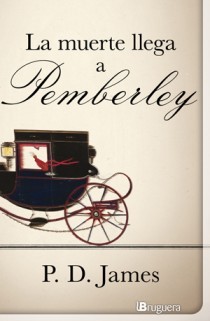 Approximate translation: The great theater
Approximate translation: The great theater
I never read anything from “Manucho” that I didn’t utterly love.
The great theater which the title refers to is the Colón (one of the top 5 opera houses in the world, for its size, acoustics and history, according to Wikipedia, of course), the scenery for this novel, which is structured like an opera: overture, first act, first intermission, second act, etc. Everybody who is somebody is that night there, for the premiere of Parsifal, but few of them are actually there to hear Wagner. The author describes in a very lucid and charming style the high society of the thirties in Buenos Aires, with families divided from decades, social climbing, picturesque characters, romantic affairs, delusions of grandeur, hidden homosexuality, bankruptcy and every possible ingredient. How everybody moves and talks, from the college students in the cheaper seats, to the great names in the boxes, and the violinist with honey hair. And everybody is expectant for the next grand amusement: Bebe’s ball. Few are invited, and the rest is desperately seeking for an invitation.
I’m always out of words when I have to talk about anything written by Mujica Láinez. I guess I’m just glad that I was born in the same country that he did, that he wrote in the same language I speak and that I was able to know his fantastic works.
 Approximate translation (from the Spanish title, because I don’t speak Finnish): Sky carrier
Approximate translation (from the Spanish title, because I don’t speak Finnish): Sky carrier This is a fan fiction that got big. The author takes the characters from Jane Austen’s Pride and Prejudice, some years after the ending of that book. Both Jane and Elizabeth are still happily married and have formed a lovely family. As every year, Elizabeth is in charge of a big ball at Pemberley, but this one doesn’t take place. The night before the event, Lydia, Elizabeth’s younger sister, arrived at Pemberley in a shock state clamoring that his husband, George Wickham, might be dead in the forest. It turns out that Wickham was still alive, but gets suspected of his friend’s murder. The rest of the book is, basically, like any other mystery novel, trying to find out if Wickham is or isn’t the murderer.
This is a fan fiction that got big. The author takes the characters from Jane Austen’s Pride and Prejudice, some years after the ending of that book. Both Jane and Elizabeth are still happily married and have formed a lovely family. As every year, Elizabeth is in charge of a big ball at Pemberley, but this one doesn’t take place. The night before the event, Lydia, Elizabeth’s younger sister, arrived at Pemberley in a shock state clamoring that his husband, George Wickham, might be dead in the forest. It turns out that Wickham was still alive, but gets suspected of his friend’s murder. The rest of the book is, basically, like any other mystery novel, trying to find out if Wickham is or isn’t the murderer.